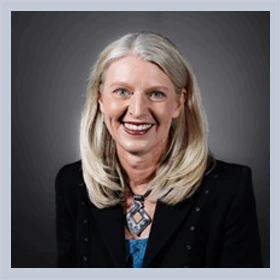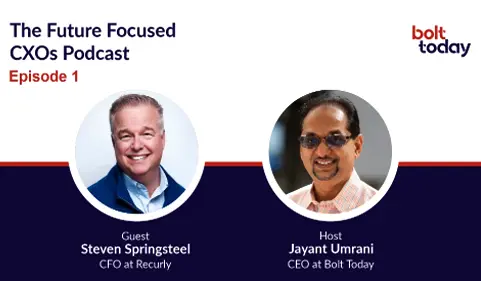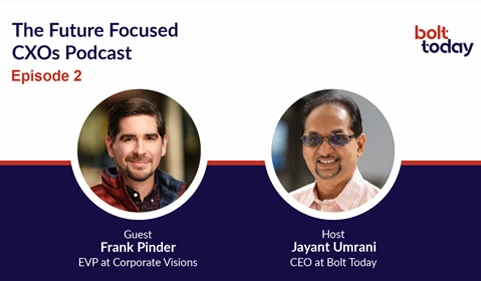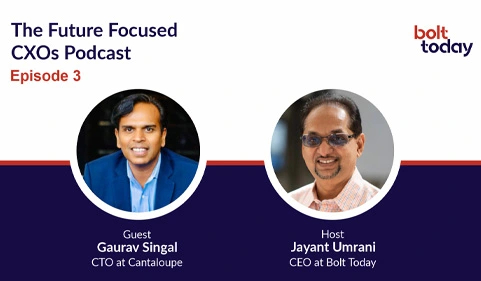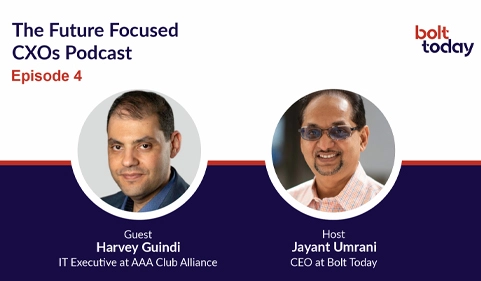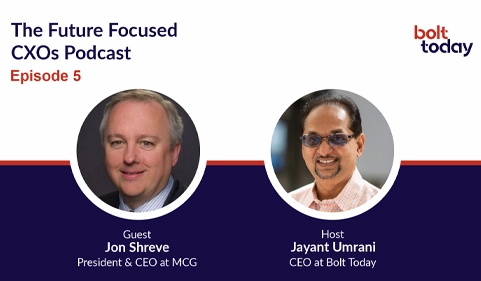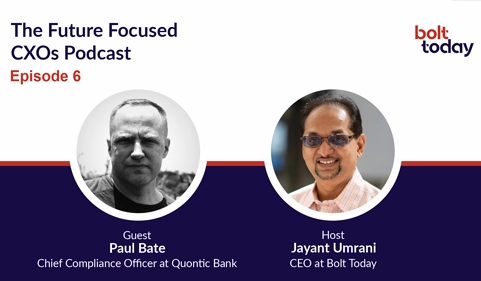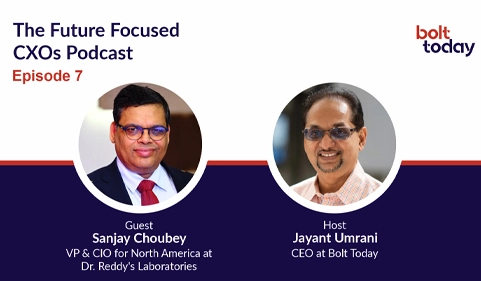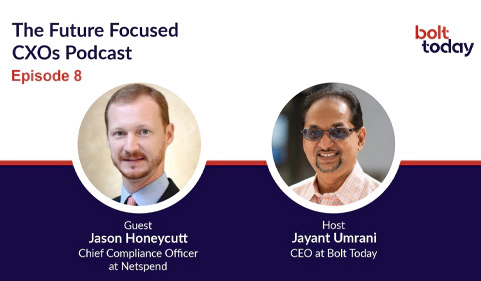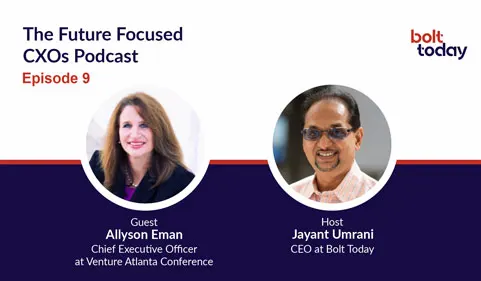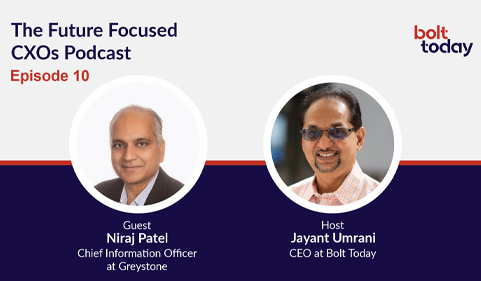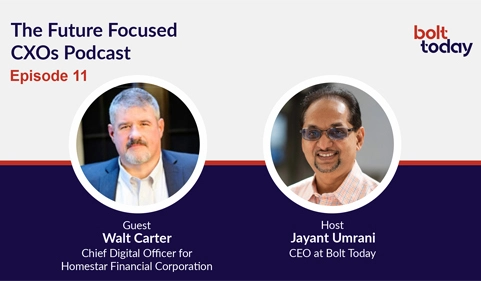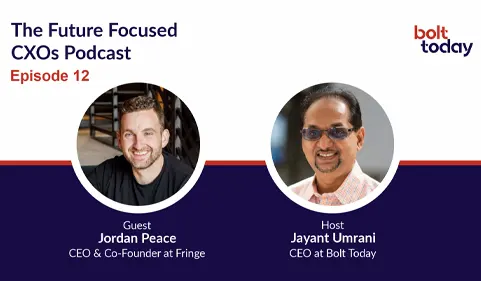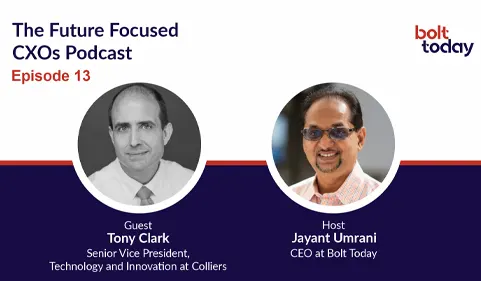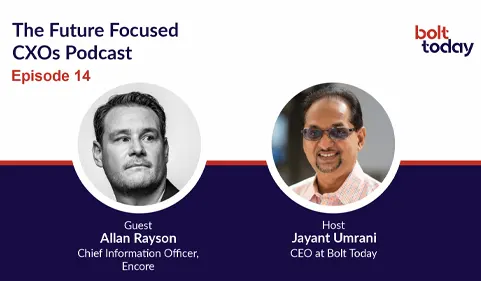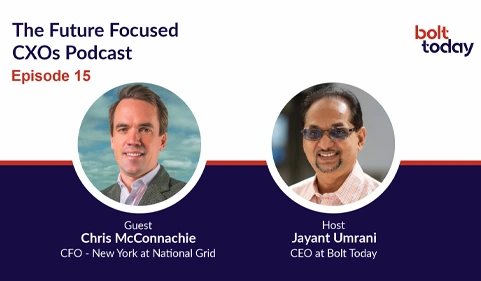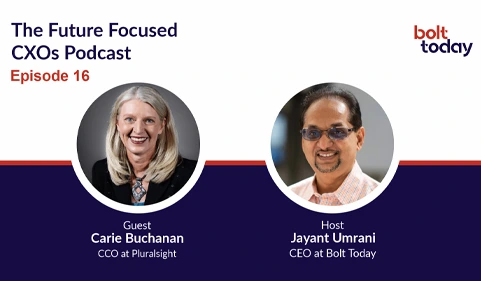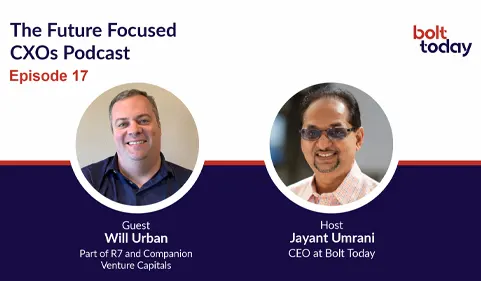Discover the winning strategies used by top CXOs to drive growth in their companies, even in the toughest of times! Join us on this must-listen podcast as we learn from the best in the business world.
Carie Buchanan, a beacon of innovation and customer success. As the CXO at Pluralsight, Carie represents over three decades of expertise in driving customer experience, renewal management, customer support, and professional services to new heights. Her strategic acumen and agility share insights on how to maintain excellence in the ever-evolving landscape of customer experience.
Tune in to Engaging Conversations and Insights!
Topics Discussed
0:40 - Reflecting on my journey has reminded me of valuable lessons. Starting as a programmer at Andersen Consulting (now Accenture), I quickly transitioned from coding in C++ to user testing, where my passion for customer service took root. After two decades there, focusing on CRM Development across various sectors, I joined Salesforce to lead customer success initiatives. Working with giants like Coca-Cola and FedEx, I honed my skills in strategy and operations within customer success, including handling escalations and implementing tools like Gainsight. The work as Chief Customer Officer at Pluralsight and global roles at Infor have rounded out a rewarding career dedicated to customer excellence.
3:30 - It's fascinating to reflect. While at Pluralsight, serving on the Executive Leadership Team offered a comprehensive view of company operations and decision-making. If I could change one approach, it would be to prioritize customer-impacting factors higher, especially during the onboarding process. This crucial stage shapes the customer's perception and future interactions. I also recognize the importance of aligning and optimizing shared metrics with cross-functional teams like sales and product. This alignment ensures mutual support and accountability towards common goals. Lastly, I would enhance communication with my peers, not just within my team, to ensure a broader understanding and recognition of our function's contributions and successes.
7:25 - During these tough periods, especially in the tech sector where cuts are prevalent, I prioritized transparency and open communication. Acknowledging the anxiety that arises from unseen decisions, I engaged in direct dialogues, like unstructured fireside chats, to understand and address concerns. Despite facing layoffs and security challenges, maintaining honesty about our situation was key. I also emphasized the importance of explaining the rationale behind difficult decisions, such as layoffs, to foster understanding. Ensuring that the leadership effectively communicated these reasons down the chain was crucial to alleviate disconnects and anxiety, reinforcing the value of clear, empathetic communication in navigating hardships.
10:07 - The foundation of effective team management, regardless of the team's size or location, is establishing a common vision and ensuring each member understands their role within the company. It's crucial to value each team member's contribution equally, highlighting the importance of their work on customer engagement, whether they're handling major accounts or smaller, transactional relationships. For managing diverse teams, recognizing the uniqueness of each market and adapting your approach is vital. This includes considering cultural differences, operational norms in different countries, and the significance of local partners. Additionally, accommodating for practical issues like time zone differences to foster inclusivity is important. My international experience has underscored the necessity of not assuming a one-size-fits-all strategy and valuing the varied ways teams contribute to the overall business, ensuring everyone feels valued and understood.
13:09 - Key to managing major accounts like Coca-Cola is establishing a robust communication framework, ensuring clarity in roles and responsibilities across global teams. A significant part of my approach involved identifying and cultivating relationships with essential stakeholders, turning potential challengers into allies by focusing on their success and the company's objectives. Building personal connections, even in a virtual world, remains crucial; face-to-face interactions can fortify these relationships, especially during challenging times. Regular, transparent communication about progress, celebrating successes, and keeping executives informed of positive developments help reinforce trust and partnership.
This strategy not only aids in managing the account effectively but also in navigating the complexities and organizational changes that often occur within large accounts. Personal effort in understanding and contributing to stakeholders' success is fundamental, demonstrating a commitment beyond mere transactional interactions, which can lead to lasting professional relationships and opportunities.
18:50 - A prevalent misconception about customer success is viewing it solely as the responsibility of the Customer Success Management (CSM) team, particularly about renewals. I believe customer success should be a company-wide value, integral to every department's objective. At Salesforce, for instance, we embraced the 'V2MOM' framework, aligning the entire company around the vision of customer success and how each role contributes to it. Another misconception is viewing customer success as merely a cost center rather than a revenue driver. It's essential to link customer success metrics directly to value and revenue, emphasizing the importance of building strong relationships and understanding customer needs beyond transactional interactions.
Handling customer escalations effectively also plays a key role, viewing them as opportunities for improvement rather than just challenges. Ultimately, customer success hinges on a company-wide commitment to understanding and meeting customer needs, leveraging data effectively, and ensuring the right fit between customer expectations and the company's offerings.
25:44 - My consultative mindset, honed over 20 years in consulting, brings three key elements to Customer Success: strategic guidance, problem-solving, and demonstrating value. Unlike traditional Customer Success teams that may act transactionally or reactively, my approach emphasizes strategic, tailored advice over generic best practices. I advocate for understanding the customer's specific needs and objectives to offer precise recommendations, moving beyond merely sharing what works across the board. This approach demands a shift from being agenda-driven to genuinely advising customers on actions that align with their unique context and goals.
It's about confidently providing direction based on deep knowledge of the customer, which not only enhances the value we deliver but also cements trust and partnership. Transitioning from a one-size-fits-all methodology to a more personalized, consultative strategy has been crucial across different companies, adapting to their distinct cultures and customer bases.
29:42 - Stepping out of your comfort zone is crucial. My time in sales at Accenture, though initially daunting, provided invaluable insights into the sales process and forecasting, enhancing my ability to work effectively with sales teams later on. Embracing roles that offer a new perspective on the business, volunteering for cross-functional projects, and learning about different parts of the company can be incredibly beneficial.
Seeking understanding and collaboration across the entire customer journey, not just your segment prepares you for broader roles like Chief Customer Officer, which often encompass multiple customer-facing functions. Lastly, continuous learning and adaptability, especially in areas like AI, are key. Embracing mistakes as learning opportunities rather than setbacks will contribute to your development and readiness for CXO roles.
34:19 - Being a Chief Customer Officer is particularly thrilling at the moment, as we're reevaluating the role of customer success within businesses. This era of innovation and the blending of traditional roles, including the discussion around CSMs' involvement in sales and account expansion, presents an opportunity for creative thinking. It's an exciting time to leverage new tools and methodologies to enhance customer success. Embracing this period of change and innovation is key to evolving our approaches and ultimately, achieving greater success for our customers.
